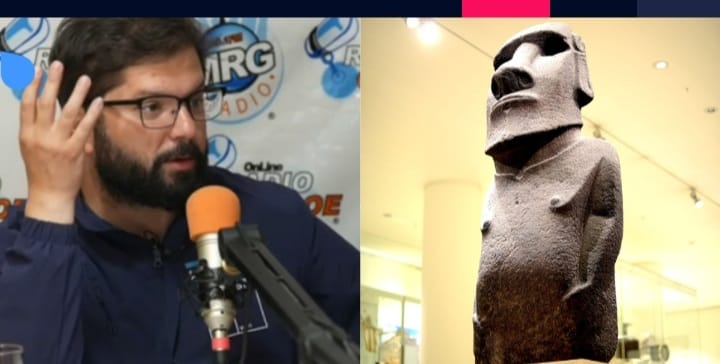
By Andres Kogan Valderrama
HAVANA TIMES – The recent social media campaign called “Return the Moai” (1) has once again brought into discussion the need for England to return this stone statue to Rapa Nui due to its high historical and symbolic value for the island and for all those who believe in a fairer world.
Even President Gabriel Boric has joined a demand that at first glance might seem like a mere request for the restitution of a sculpture stolen in the 19th century by the British Empire, but it also sparks a debate about the colonial nature of museums as institutions and the need for their decolonization.
In other words, this demand for the return of the Moai to Rapa Nui (which the British Empire dubbed Easter Island) can be seen as the result of the discussion we had as a country during the constituent process in 2022, which may have had a bad ending and a true war against it by the most conservative sectors, but it could have instilled to some extent the value of interculturality, plurinationality, and decolonization.
Therefore, thinking about decolonization goes far beyond the end of territorial occupation or the return of certain objects forcibly taken, such as the Moai in question. It is also about the role that museums have played since the 18th century in promoting discriminatory, exclusionary, and domination narratives, which have


